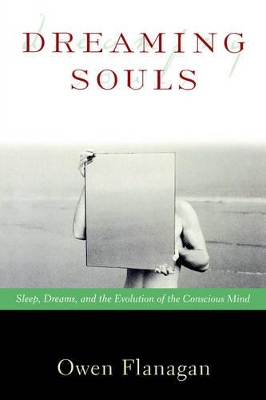Philosophy of Mind
2 total works
Dreaming Souls: Sleep, Dreams, and the Evolution of the Conscious Mind
by Owen Flanagan
Published 7 June 2001
What, if anything do dreams tell us about ourselves? What is the relationship between types of sleep and types of dreams? Does dreaming serve any purpose? Or are dreams simply meaningless mental noise-'unmusical fingers wandering over the piano keys'?
With expertise in philosophy, psychology, and neuroscience, Owen Flanagan is uniquely qualified to answer those questions. And in Dreaming Souls he provides both an accessible survey of the latest research on sleep and dreams and a compelling new theory about the nature and function of dreaming. Flanagan argues that while sleep has a clear biological function and adaptive value, dreams are merely side effects, 'free-riders', irrelevant from an evolutionary point of view. But dreams
are hardly unimportant. Indeed, Flanagan argues that dreams are self-expressive, the result of our need to find or create meaning, even when we are sleeping. Rejecting Freud's theory of manifest and latent content-of repressed wishes appearing in disguised form-Flanagan shows how brainstem activity during
sleep generates a jumbled profusion of memories, images, thoughts, emotions, and desires, which the cerebral cortex then attempts to shape into a more or less coherent story. Such dream narratives range from the relatively mundane worries of non-REM sleep tot he fantastic confabulations of deep REM that resemble pyschotic episodes in their strangeness. But, however bizarre these narratives may be, they can shed light on our mental life, our well being, and our sense of self.
Written with clarity, lively wit, and remarkable insight, Dreaming Souls offers a fascinating new way of apprehending one of the oldest mysteries of mental life.
With expertise in philosophy, psychology, and neuroscience, Owen Flanagan is uniquely qualified to answer those questions. And in Dreaming Souls he provides both an accessible survey of the latest research on sleep and dreams and a compelling new theory about the nature and function of dreaming. Flanagan argues that while sleep has a clear biological function and adaptive value, dreams are merely side effects, 'free-riders', irrelevant from an evolutionary point of view. But dreams
are hardly unimportant. Indeed, Flanagan argues that dreams are self-expressive, the result of our need to find or create meaning, even when we are sleeping. Rejecting Freud's theory of manifest and latent content-of repressed wishes appearing in disguised form-Flanagan shows how brainstem activity during
sleep generates a jumbled profusion of memories, images, thoughts, emotions, and desires, which the cerebral cortex then attempts to shape into a more or less coherent story. Such dream narratives range from the relatively mundane worries of non-REM sleep tot he fantastic confabulations of deep REM that resemble pyschotic episodes in their strangeness. But, however bizarre these narratives may be, they can shed light on our mental life, our well being, and our sense of self.
Written with clarity, lively wit, and remarkable insight, Dreaming Souls offers a fascinating new way of apprehending one of the oldest mysteries of mental life.
Continuing the old philosophical project of reconciling a scientific view of ourselves with the view of ourselves as agents of free will and meaning, but bringing to this project the latest insights of neuroscience, cognitive science, and psychiatry, Flanagan's collection of essays explores topics such as a scientific explanation of consciousness, the moral socialization of children, and the nature and issues of psychological phenomena such as multiple personality
disorder and false memory syndrome.
disorder and false memory syndrome.

